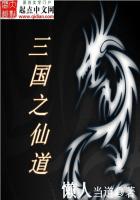The organization of these communities was based on the same principles as the Servian zadruga . The association cultivateda parcel of land in common, and inhabited the same dwelling. This dwelling was of large extent or composed of severalbuildings connected together, opposite which were built the barns and cattle-sheds. It was called celle ( cella ), and the nameis preserved under different forms in a number of villages, as La Celle-Saint-Cloud, Mavrissel, Courcelles, Vaucel. Thedomain bore the name of the family, and even now properties are distinguishable by the article, les , which custom hasretained before their name, as les Avrils , les Rollins , les Segands , les Bayons , les Bernards , les Avins , les Gault . Theassociated members were called " compains " ( compani ), because they lived of the same bread," partçonniers ," because eachtook his share of the produce,or "frarescheus," because they lived together as brothers. The community was called" compagnie ," " coterie ," (7) " fraternité ;" domus fraternitatis , in the Polyptique d'Irminon . Beaumanoir, the oldest author whogives any information on the juridical constitution of these communities, thus explains the term by which they are oftendesignated: " Compagnie is constituted by our custom, by having a single common dwelling, the same bread, the same pot,for a year and a day, when the property of the several members is confused together."In the Institutes coutumières by Antoine Loysel, published in 1608, several rules are still found relating to familycommunities (I. LXXIV.); "Serfs or mainmortables cannot make a will and have no right of succession, unless they live incommunity" ( Edition Dupin et Laboulaye , t. I. p. 122). The lord succeeded to the serf, so that all agricultural work wouldhave had to be carried on without the stimulus of a succession within the family group, if these agricultural communities hadnot existed. The serfs, living in community, and having the right of succession one to another, could also make a will infavour of one another, without impairing the rights of the lord. According to Lauriére, in his notes on Loysel's work, theserfs living in community have this right of succession, "because they possess their property jointly, so that the portion ofany who die belongs to the survivors by a kind of right of accrual." (8) When the co-partners cease to partake of the morsel orthe breads that is to say, when they set up a separate establishment, the community is at an end. The majority of customsfavourable to the communities do not apply these rules rigorously. According to the custom of Nivernais (c. VII. art. 13),"persons in a state of mortmain are not regarded as having separated until they have maintained, for a year and a day , ahearth and home apart, separated and divided from one another." In La Marche the separation was only effected by theexpress declaration of the co-partners; when once separated, they could only constitute themselves into a new communitywith the consent of the lord.
Living in this community had so much importance in matters of succession, that at Paris in ancient times, Laurière tells us,the child who was in celle ( cella , dwelling), and lived of the bread and fare of his parents, succeeded to the exclusion of theothers. Article XXXIII. of Loysel says: "A single child, being in celle , receives mortmain ." The child in " celle " aloneinherited, and prevented the devolution on the lord by mortmain; and, according to the custom of several districts, the otherchildren were enabled to succeed through him.
The community was generally recognized as existing in fact when the peasants inhabited the same house and lived "of thesame pot" for a year and a day. It was only in later times and to avoid the growing process of partition, when the institutionwas already tending to pass away, that several customs required a contract to make immoveables common property. Certaincustoms only allow community where "there is relationship between the co-partners." This was obviously the original formof these agrarian associations; and it is only in later times, under the influence of the feudal system, that communities wereconstituted of persons who were not descended from a common ancestor.
Those who lived in the community succeeded to one another to the exclusion of relations not members of the society; andeven a stranger, when once admitted to the community, as forming a part of it, prevailed over the kinsmen who were outsidethe community. Guy Coquille admits this principle after having previously called it in question. "On consideration, it seemedto me more reasonable to assert that the stranger to the community is regarded as absolutely excluded. For this rigorous lawseems to have been framed in favour of the family , to keep it united, especially in the district where village-establishmentscannot be maintained except by a large number of persons living together in community; and experience skews that partitionis the ruin of families in a village . Since, then, the law speaks generally, and the presumption is that its intention was topreserve the family that they might not be dissolved, it seems we must follow the terms of the law, and say that the kinsmanin the community alone succeeds." (9)















